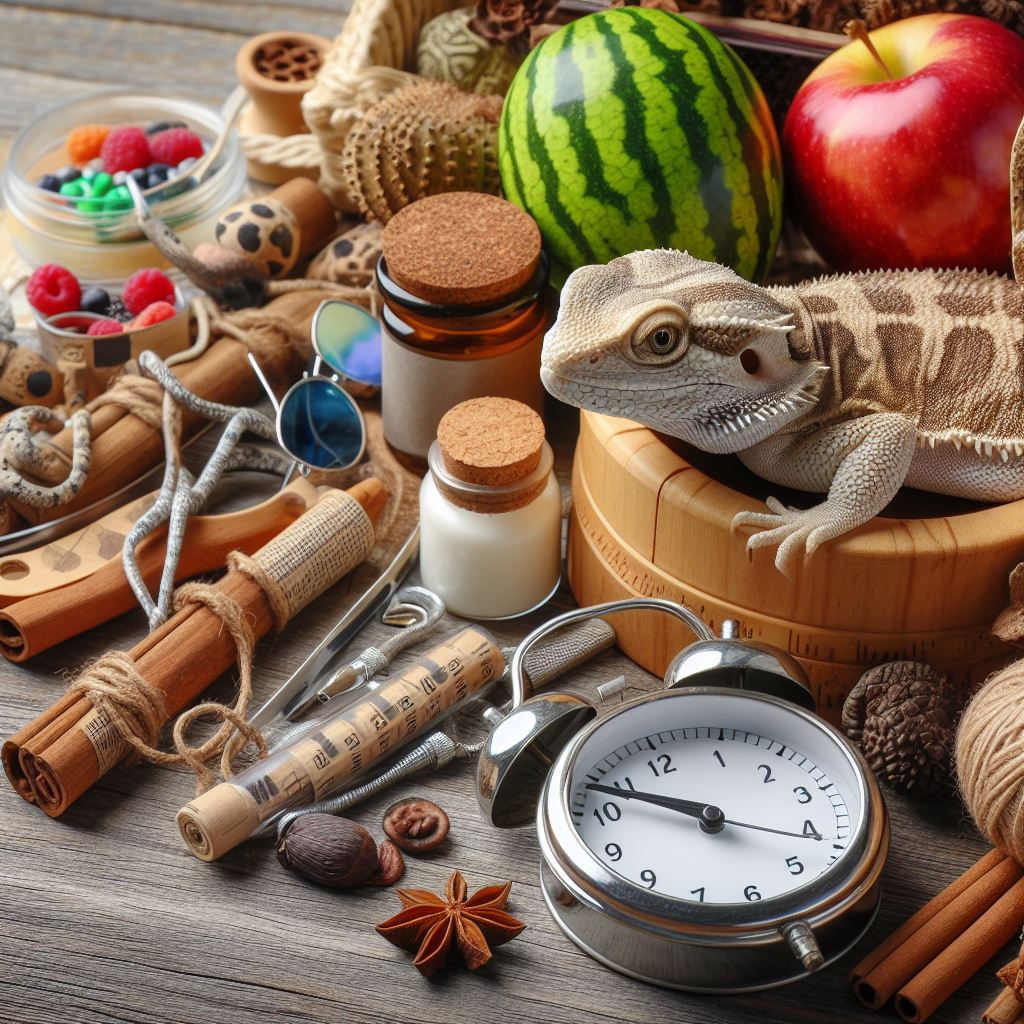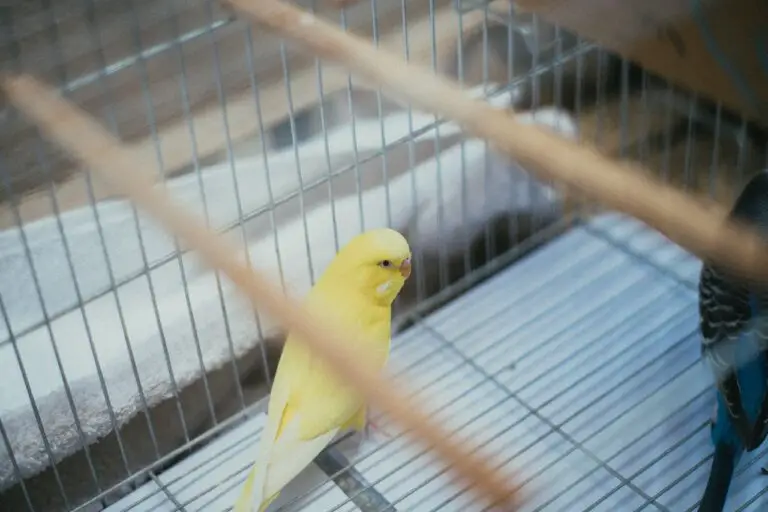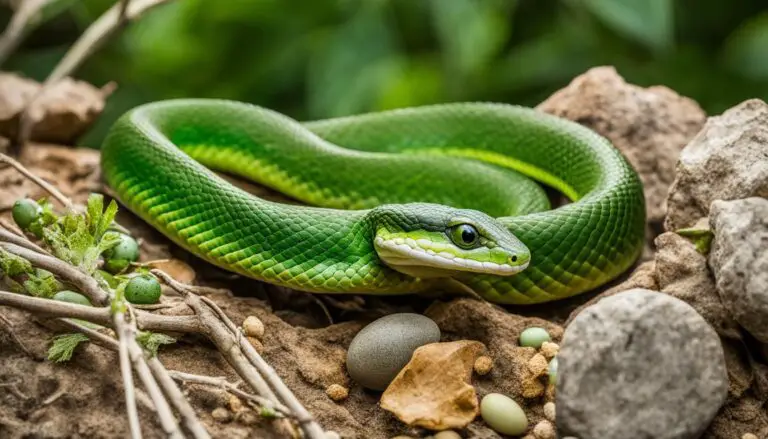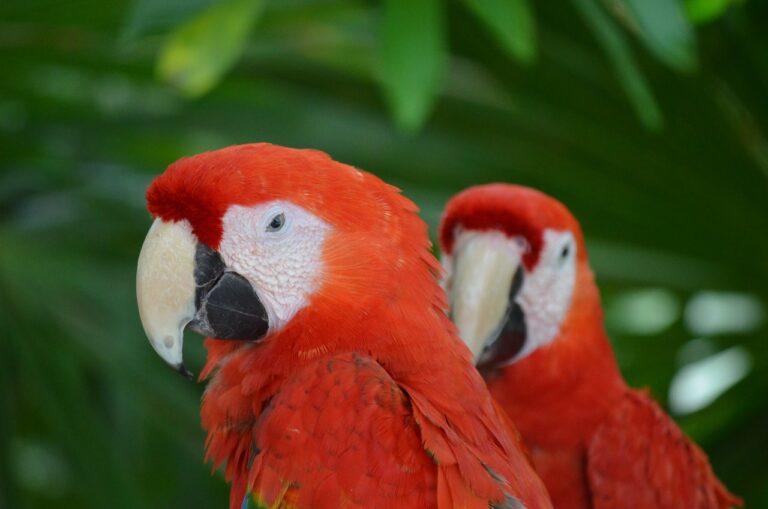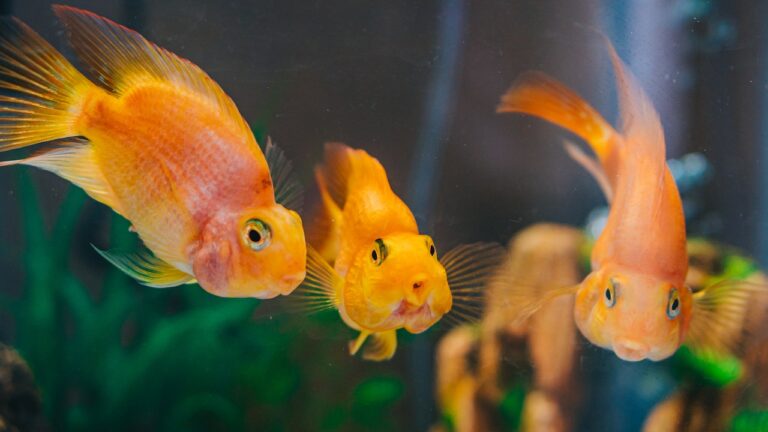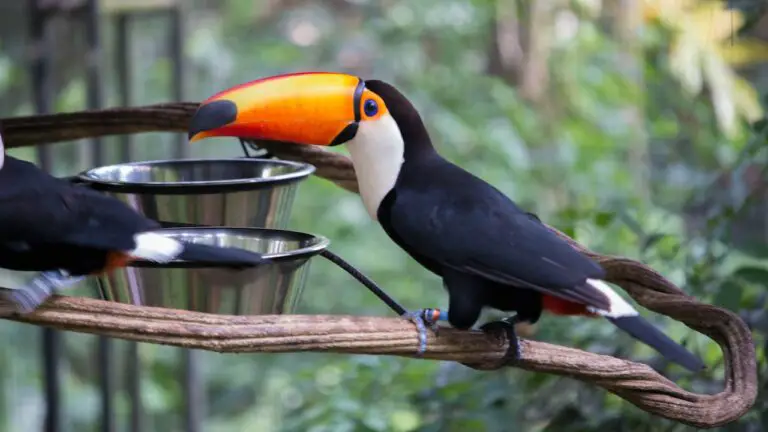Essential Supplies for Exotic Reptile Pet Owners
Owning an exotic reptile can be a rewarding but challenging experience. Reptiles have very specific habitat and dietary requirements that must be met in order to keep them healthy and happy.
| Key Takeaways | Details |
|---|---|
| Appropriate Housing | Housing should be species-specific, considering factors like adult size, habitat preference, and temperature needs. Options include glass tanks, plastic cages, wooden vivariums, stock tanks, and front-opening enclosures. |
| Heating and Lighting Supplies | Reptiles need heating and possibly UVB lighting. Options include under tank heaters, ceramic heat emitters, basking bulbs, infrared & nighttime bulbs, deep heat projectors, and heat mats. |
| Substrate | The flooring material should be chosen based on the species’ needs. Options include sand, cypress mulch, coconut coir, sphagnum moss, bark chips, reptile carpet, newspaper, and bioactive mixes. |
| Hides | Hides provide security for reptiles. They should be snug and enclosed on three sides. Options include cork bark, reptile caves, driftwood, artificial decor, and plants. |
| Humidity Maintenance | Some species require specific humidity levels. Maintain levels with daily misting, foggers/misters, sphagnum moss, water features, and adjustable vent systems. |
| Water Supplies | Fresh, clean water is essential. Provide shallow water bowls or pools, misting systems, drippers for arboreal species, waterfalls, and frequent water changes. |
| Food and Supplements | Nutrition is vital. Feed appropriate feeder insects, greens, vegetables, fruit, pre-killed rodents, or commercial diets. Supplements like calcium powder, vitamin D3, and multivitamins are also essential. |
| Habitat Decor and Enrichment | Naturalistic decor and enrichment items like plants, vines, branches, rocks, and substrate make the habitat more comfortable. Enclosures should also include climbing and basking opportunities, adequate space, and visual barriers. |
| Thermometers and Hygrometers | Accurately monitoring temperature and humidity is critical. Have at least one thermometer and hygrometer in the enclosure at all times. |
| Cleaning Supplies | Enclosures need regular cleaning and disinfecting. Useful supplies include mild soap, disinfectant, unscented baby wipes, distilled vinegar, paper towels, scrub brushes, and sponges. |
| Tongs and Handling Supplies | Special tools allow safe handling. These include feeding tongs, habitat maintenance tools, thick gloves or sleeves, soft restraining devices, catch cups or nets, and transport carriers. |
| First Aid Supplies | Basic medical supplies allow treatment of minor injuries. These include antiseptic wash, gauze, adhesive bandages, topical antibiotics, sterile saline, eye wash, styptic powder, thermometer, and small animal scale. |
As a responsible exotic reptile owner, you need to make sure you have all the proper supplies and equipment before bringing home your new pet.
Here is an overview of the essential supplies you need to properly care for an exotic reptile:
Appropriate Housing
Reptiles need an enclosure that allows them to thermoregulate and provides adequate space for their natural behaviors. The specific size and type of enclosure depends on the species.
Common housing options include:
- Glass Tanks – Best for smaller, tropical species like geckos and anoles. Ensure proper ventilation.
- Plastic Cages – Lighter weight and more affordable than glass. Good for desert species.
- Wooden Vivariums – Attractive, naturalistic option for arboreal and tropical species. Allows customization.
- Stock Tanks – Durable plastic tubs suitable for aquatic turtles and large lizards like monitors.
- Front-Opening Enclosures – Provides easy access. Ideal for many snakes, lizards and amphibians.
When choosing housing, consider factors like:
- Adult size of reptile
- Arboreal vs terrestrial species
- Humidity and temperature needs
- Providing adequate space for movement and climbing
Proper housing is key to your reptile’s health.
Heating and Lighting Supplies
Since reptiles are cold-blooded, heating is essential.
Options include:
- Under Tank Heaters: Adhesive pads that stick to the bottom of a glass tank. Good for small enclosures.
- Ceramic Heat Emitters: Generate heat but no light. Good for nocturnal species.
- Basking Bulbs: Create a hot spot so reptiles can thermoregulate. Important for diurnal lizards.
- Infrared & Nighttime Bulbs: Produce heat while allowing night cycle. Help maintain ambient temps.
- Deep Heat Projectors: Focus heat on basking areas. Mimic natural sunlight.
- Heat Mats: Flat heat source placed under enclosure. Another good option for small tanks.
Proper wattage is important to prevent overheating. Use a thermostat to maintain steady temperatures. A thermometer at each end lets you monitor the temperature gradient.
Some species also require specialty UVB lighting. This stimulates vitamin D3 production needed for calcium metabolism. Proper lighting is vital for your reptile’s health.
Substrate
Substrate refers to the flooring material within the enclosure. The appropriate substrate depends on the species.
Key factors to consider are:
- Humidity needs – some substrates hold moisture better
- Burrowing behavior – fine particles or sand for diggers
- Risk of accidental ingestion – avoid loose particulate for certain reptiles
- Ease of cleaning – simple substrates like paper towels or reptile carpets
Some common substrates options:
- Sand
- Cypress mulch
- Coconut coir
- Sphagnum moss
- Bark chips
- Reptile carpet
- Newspaper or paper towels
- Bioactive mixes
No single substrate is right for every species. Research to find the best option for your reptile’s needs.
Hides
Hides are important to make your reptile feel secure. Provide a minimum of one hide at each end of the temperature gradient. More is better!
Hides should be snug and enclosed on three sides.
Options include:
- Cork bark
- Reptile caves
- Driftwood
- Artificial decor like logs or rock formations
- Plants for added concealment
Proper hides allow reptiles to feel hidden from stressors and safely thermoregulate.
Humidity Maintenance
Some species require specific humidity levels to thrive. Monitor humidity with hygrometers and maintain levels based on your pet’s needs with:
- Daily misting
- Foggers/misters on timers
- Sphagnum moss
- Water features like ponds or pools
- Adjustable vent systems
Proper humidity supports healthy shedding and prevents respiratory issues.
Water Supplies
Fresh, clean water is essential for hydration and soaking.
Provide:
- Shallow water bowls or pools
- Misting systems
- Drippers for arboreal species
- Waterfalls
- Frequent water changes
The size and type depend on species habits and size. Rinse and disinfect regularly to prevent bacterial or fungal growth.
Food and Supplements
Nutrition is vital for growth and health.
Feed:
- Appropriate feeder insects like crickets, worms, roaches
- Greens, vegetables and fruit for herbivorous species
- Pre-killed rodents for obligate carnivores
- Commercial diets formulated for nutritional completeness
Also essential are supplements like:
- Calcium powder for strong bones and eggshells
- Vitamin D3 for metabolic processes
- Multivitamins for nutritional balance
Research proper diets for your specific exotic reptile species. A varied, nutrient-rich diet supports good health and longevity.
Habitat Decor and Enrichment
Naturalistic decor like plants, vines, branches, rocks and substrate make the habitat more comfortable. Enclosures should also include:
- Climbing and basking opportunities
- Adequate space for movement and normal behaviors
- Visual barriers and hiding spots
Rotating novel objects and placing food in different locations provides mental stimulation. A well-decorated habitat reduces stress and enriches your pet’s life.
Thermometers and Hygrometers
Accurately monitoring temperature and humidity is critical. Have at least one thermometer and hygrometer in the enclosure at all times. Digital sensors with probes give the most accurate readings. Place sensors at ground level and near basking areas. Checking gradients lets you adjust heat and moisture appropriately.
Cleaning Supplies
For health, enclosures need regular cleaning and disinfecting.
Useful supplies include:
- Mild soap
- Disinfectant like chlorhexidine
- Unscented baby wipes
- Distilled vinegar
- Paper towels
- Scrub brushes and sponges
- Filtered water for rinsing
Thoroughly clean decor, bowls, and surfaces between uses to prevent disease. Proper hygiene is key for a safe habitat.
Tongs and Handling Supplies
Special tools allow safe handling when maintaining the habitat, feeding, or examining your reptile:
- Feeding tongs
- Habitat maintenance tools like scoops and spoons
- Thick gloves or sleeves for handling aggressive species
- Soft restraining devices
- Catch cups or nets
- Transport carriers or boxes
Use appropriate tools to prevent escape, bites, and unnecessary stress during handling. Never handle after using chemical products.
First Aid Supplies
Having basic medical supplies on hand allows you to treat minor injuries and issues:
- Antiseptic wash
- Gauze
- Adhesive bandages
- Topical antibiotics
- Sterile saline
- Eye wash
- Styptic powder
- Thermometer
- Small animal scale
Consult an experienced herp vet for proper use and dosing of any products. Be prepared to seek professional veterinary care for major injuries or illnesses.
Conclusion
Bringing home an exotic reptile is a big commitment. Their specialized needs are not simple or inexpensive to meet.
Make sure to thoroughly research care requirements and properly outfit their habitat before acquisition.
Stock up on all essential supplies to offer your exotic reptile pet the best possible quality of life. With good husbandry practices, your reptile companion can thrive for many years.
Frequently Asked Questions
1. What type of enclosure and habitat setup do I need for an exotic reptile pet?
The enclosure should allow for proper thermoregulation and provide adequate space for natural behaviors. Key factors in choosing housing are adult size of the reptile, whether it is arboreal or terrestrial, humidity needs, temperature gradients, lighting requirements, and allowing room for movement and climbing.
Proper substrates, hides, water supplies, decor, and climbing opportunities should also be provided based on species needs.
2. What heating, lighting, and humidity supplies will my reptile need?
Options for heating include under tank heaters, ceramic heat emitters, basking bulbs, infrared bulbs, and heat mats. Use a thermostat and thermometers to maintain proper temperatures.
Some species also require special UVB lighting for vitamin D3 production. Humidity can be maintained through misting systems, moisture-retaining substrates like moss, and adjustable vents. Hygrometers monitor humidity levels.
3. What should I feed my exotic reptile and what supplements does it need?
Feed species-appropriate insects, vegetables, fruits, greens, pre-killed rodents, or commercial diets. Essential supplements include calcium powder for bone health, vitamin D3 for metabolism, and multivitamins. Provide clean, fresh water at all times. Vary diet and use nutrient-rich foods to support health.
4. How often do I need to clean the enclosure and what supplies are needed?
For health, clean and disinfect the enclosure regularly using mild soap, disinfectants like chlorhexidine, unscented baby wipes, distilled vinegar, paper towels, and filtered water for rinsing. Thoroughly wash water bowls, decor, and surfaces between each use. Proper hygiene prevents disease.
5. What special tools and handling supplies should I have?
Use feeding tongs, thick gloves/sleeves, soft restraints, catch cups, nets, transport carriers, and habitat maintenance tools for safe handling when feeding, cleaning enclosures, or examining your reptile. This prevents escape, bites, and stress during interactions. Basic medical supplies are also useful for minor injuries.
Peter Stones is the founder of Exotic Pets Place, the leading online resource for exotic pet care information.
With over 10 years of hands-on exotic pet ownership experience, he is deeply passionate about sharing his expertise to help others properly care for their unusual pets.
When he's not writing extensively researched articles or connecting with fellow exotic pet enthusiasts worldwide, you can find Peter at home tending to his own beloved menagerie of exotic animals.

